{"article":{"id":"2222133","title":"A year of 'shaking the world' for ChatGPT","description":"Although it has only been around for a year, ChatGPT has quickly 'taken over' the technology industry in particular and the world in general, becoming the fastest growing application in history.","contentObject":"
When AI researcher Sasha Luccioni went to business conferences and events last year, she asked basic questions like: “What is artificial intelligence?” Now, she says, the people she meets are not only familiar with AI, they’re also worried about whether it will “take over the world.”
\nWhat changed, according to Luccioni, was ChatGPT. On November 30, 2022, the public first accessed OpenAI's chatbot.
\nChatGPT can generate text responses - though not always reliably - to user prompts.
\nIt fundamentally changed the way people think about artificial intelligence (AI). For years, tech companies have used AI to make recommendations, detect harmful content online, and operate self-driving cars.
\nWith ChatGPT, however, AI isn't just something that works under the hood of the product, it is the product.
\nAlmost overnight, people started using ChatGPT to write song lyrics, draft emails, summarize documents, and write wedding vows.
\nSome even turn it into their personal therapist. While previous chatbots were often frustrating, ChatGPT — with its simple user interface and quick responses — is a real surprise and delight.
\nA year later, ChatGPT is used by 100 million people per week, according to OpenAI.
\nLuccioni, who works for AI startup HuggingFace, said ChatGPT was the moment AI entered the public consciousness. But it also brought a new era of AI anxiety.
\nThere are numerous reports that ChatGPT, which builds on a massive online database to generate relevant responses, can spread misinformation, perpetuate bias, threaten jobs, and help students cheat on assignments.
\nSchools have banned and then unbanned the service. Regulators have held hearings and summits on AI. Writers and actors have gone on strike, in part out of concern that AI will devalue their work.
\nAnd many industry leaders have signed a statement on “AI extinction.” The tension between the promise and peril of AI is on full display just ahead of the one-year anniversary of ChatGPT’s release.
\nOpenAI fired co-founder and CEO Sam Altman in part after disagreements with the board over AI development and monetization, Bloomberg reported.
\nOpenAI and Altman reached a settlement that would see him reinstated as CEO a few days later.
\nFei Fei Li, an AI pioneer and co-director of Stanford University's AI Institute, says it's the hype surrounding AI that creates anxiety.
\nFor some, AI tools like ChatGPT suddenly herald a future where AI surpasses humans and can wreak havoc.
\nFor others, ChatGPT and similar products are simply more powerful versions of the past.
\nNone of these concerns have stopped progress and investment in AI. In the year since ChatGPT launched, OpenAI has introduced more powerful AI models, the option to build custom ChatGPT experiences, and the ability for chatbots to respond to their own voice commands and questions. Meanwhile, more and more large enterprises and startups are racing to keep up with ChatGPT.
\nInvestors poured more than $21 billion into AI startups in the first nine months of this year, up from more than $5 billion last year, according to data from PitchBook.
\nMuch of that comes from tech giants like Microsoft, Amazon.com and Alphabet’s Google, which have bet billions of dollars to cement their positions in the rapidly growing AI market.
\nThose deals have reshaped the balance of power in tech, with Microsoft edging ahead of rivals in the AI race thanks to its partnership with OpenAI.
\nThe AI craze isn’t limited to the tech industry. JPMorgan is experimenting with AI applications that can generate earnings summaries for every company it tracks and a helpdesk service that offers steps to solve problems.
\nHealthcare professionals are using AI to automatically transcribe patient conversations into notes. Media companies are relying on AI to write articles (but not without errors).
\nAnd politicians are turning to AI for speechwriting, campaigning, and fundraising.
\nAccording to a November report from job site Indeed, the number of jobs listing AI in the title or description has increased more than 20 times since ChatGPT launched.
\nThose positions aren't just in tech. “There's been explosive growth in AI job postings,” said Nick Bunker, director of North American economic research at Indeed.
\nHowever, the number of AI positions overall remains small, accounting for six out of every 10,000 jobs posted on the site.
\nIn addition to ChatGPT, businesses and regular users can use many other AI chatbots such as Bard, Claude, Pi, Grok, Amazon Q. AI will become more and more modern.
\n“We should be ahead of the curve in the responsible use of this technology,” said Li. “It has greatly increased conversation and debate, but we need to approach it more thoughtfully by providing education and context.”
\n(According to Bloomberg)
\nAlthough it has only been around for a year, ChatGPT has quickly taken over the technology industry in particular and the world in general, becoming the fastest growing application in history.
When AI researcher Sasha Luccioni went to business conferences and events last year, she asked basic questions like: “What is artificial intelligence?” Now, she says, the people she meets are not only familiar with AI, they’re also worried about whether it will “take over the world.”
What changed, according to Luccioni, was ChatGPT. On November 30, 2022, the public first accessed OpenAI's chatbot.
ChatGPT can generate text responses - though not always reliably - to user prompts.
It fundamentally changed the way people think about artificial intelligence (AI). For years, tech companies have used AI to make recommendations, detect harmful content online, and operate self-driving cars.
With ChatGPT, however, AI isn't just something that works under the hood of the product, it is the product.
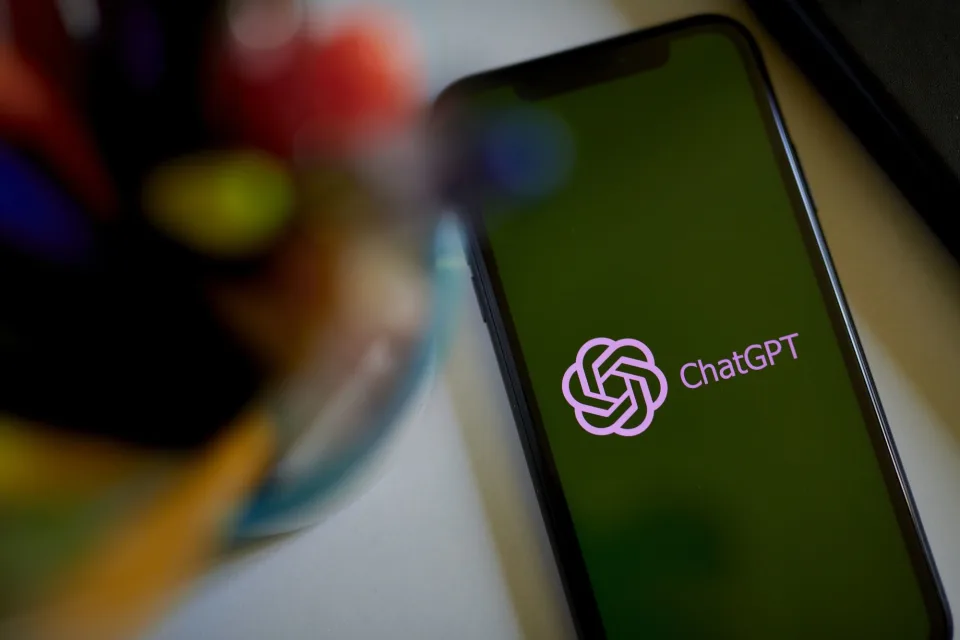
Almost overnight, people started using ChatGPT to write song lyrics, draft emails, summarize documents, and write wedding vows.
Some even turn it into their personal therapist. While previous chatbots were often frustrating, ChatGPT — with its simple user interface and quick responses — is a real surprise and delight.
A year later, ChatGPT is used by 100 million people per week, according to OpenAI.
Luccioni, who works for AI startup HuggingFace, said ChatGPT was the moment AI entered the public consciousness. But it also brought a new era of AI anxiety.
There are numerous reports that ChatGPT, which builds on a massive online database to generate relevant responses, can spread misinformation, perpetuate bias, threaten jobs, and help students cheat on assignments.
Schools have banned and then unbanned the service. Regulators have held hearings and summits on AI. Writers and actors have gone on strike, in part out of concern that AI will devalue their work.
And many industry leaders have signed a statement on “AI extinction.” The tension between the promise and peril of AI is on full display just ahead of the one-year anniversary of ChatGPT’s release.
OpenAI fired co-founder and CEO Sam Altman in part after disagreements with the board over AI development and monetization, Bloomberg reported.
OpenAI and Altman reached a settlement that would see him reinstated as CEO a few days later.
Fei Fei Li, an AI pioneer and co-director of Stanford University's AI Institute, says it's the hype surrounding AI that creates anxiety.
For some, AI tools like ChatGPT suddenly herald a future where AI surpasses humans and can wreak havoc.
For others, ChatGPT and similar products are simply more powerful versions of the past.
None of these concerns have stopped progress and investment in AI. In the year since ChatGPT launched, OpenAI has introduced more powerful AI models, the option to build custom ChatGPT experiences, and the ability for chatbots to respond to their own voice commands and questions. Meanwhile, more and more large enterprises and startups are racing to keep up with ChatGPT.
Investors poured more than $21 billion into AI startups in the first nine months of this year, up from more than $5 billion last year, according to data from PitchBook.
Much of that comes from tech giants like Microsoft, Amazon.com and Alphabet’s Google, which have bet billions of dollars to cement their positions in the rapidly growing AI market.
Those deals have reshaped the balance of power in tech, with Microsoft edging ahead of rivals in the AI race thanks to its partnership with OpenAI.
The AI craze isn’t limited to the tech industry. JPMorgan is experimenting with AI applications that can generate earnings summaries for every company it tracks and a helpdesk service that offers steps to solve problems.
Healthcare professionals are using AI to automatically transcribe patient conversations into notes. Media companies are relying on AI to write articles (but not without errors).
And politicians are turning to AI for speechwriting, campaigning, and fundraising.
According to a November report from job site Indeed, the number of jobs listing AI in the title or description has increased more than 20 times since ChatGPT launched.
Those positions aren't just in tech. "There's been explosive growth in AI job postings," said Nick Bunker, director of North American economic research at Indeed.
However, the number of AI positions overall remains small, accounting for six out of every 10,000 jobs posted on the site.
In addition to ChatGPT, businesses and regular users can use many other AI chatbots such as Bard, Claude, Pi, Grok, Amazon Q. AI will become more and more modern.
“We should be ahead of the curve in the responsible use of this technology,” said Li. “It has greatly increased the conversation and debate, but we need to approach it more thoughtfully by providing education and context.”
(According to Bloomberg)
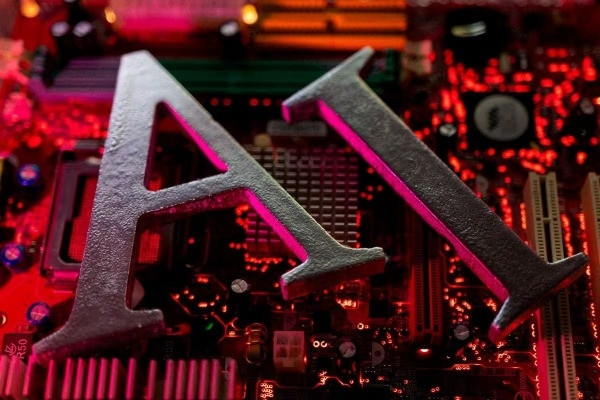
Source









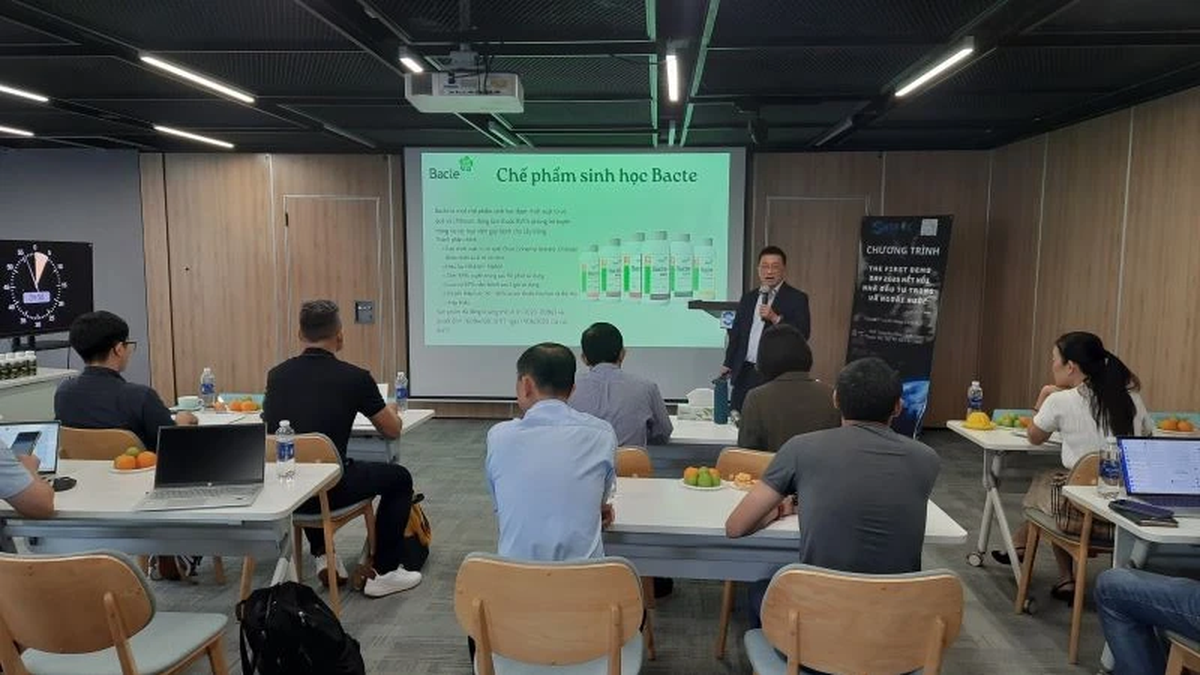
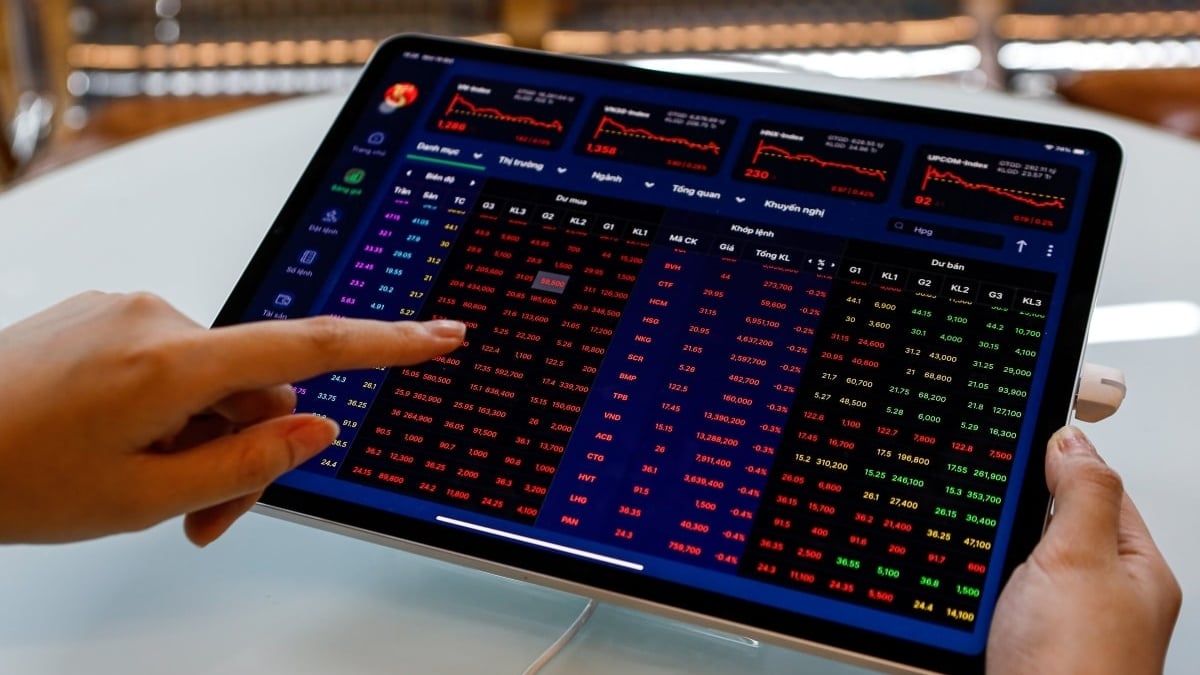
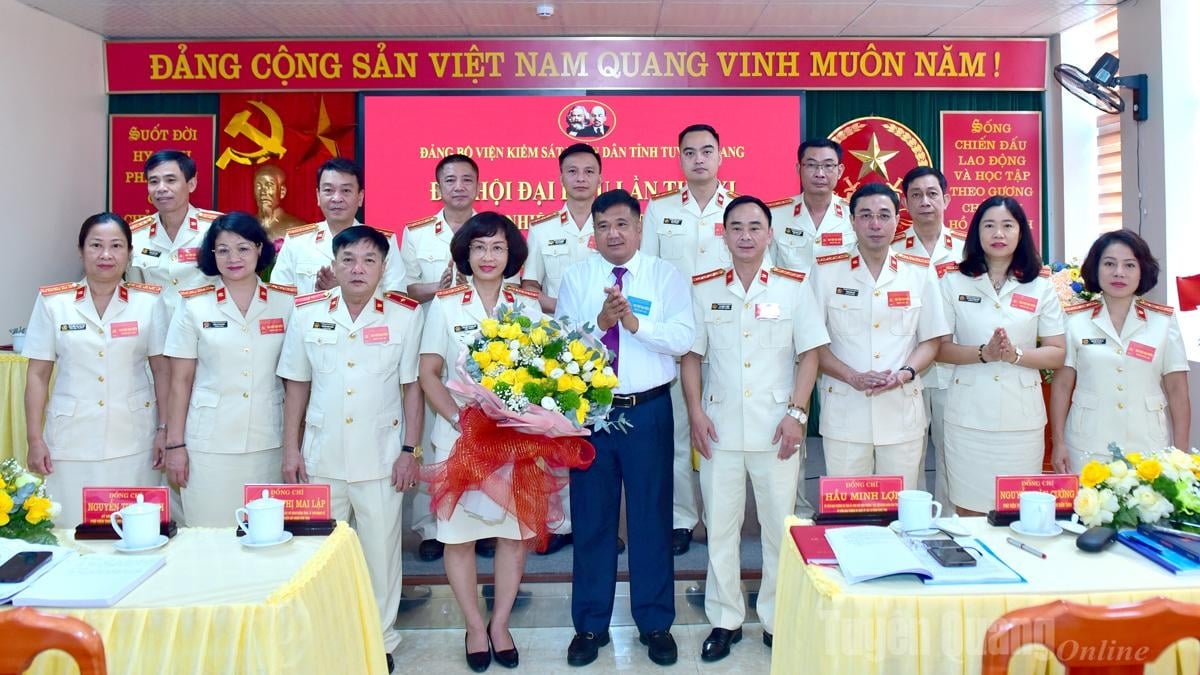











![[Photo] National Assembly Chairman attends the seminar "Building and operating an international financial center and recommendations for Vietnam"](https://vphoto.vietnam.vn/thumb/1200x675/vietnam/resource/IMAGE/2025/7/28/76393436936e457db31ec84433289f72)

































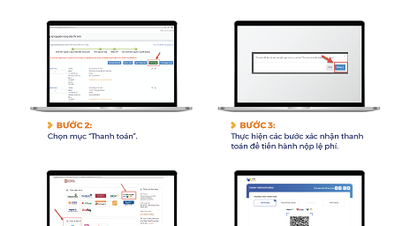

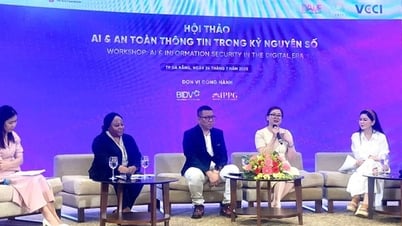




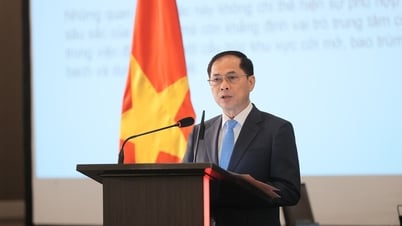




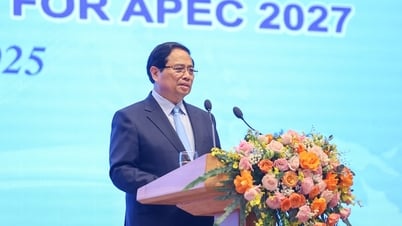




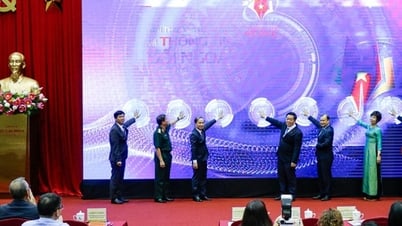
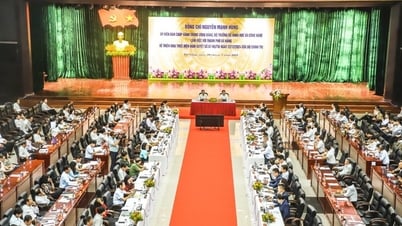
























Comment (0)